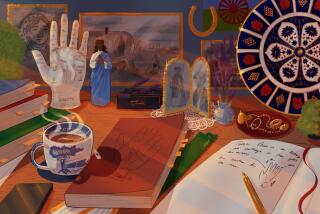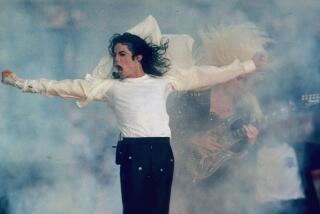Russian Mysticism and Black American Identity : THE LIVES OF JEAN TOOMER A Hunger for Wholeness <i> by Cynthia Earl Kerman and Richard Eldridge (Louisiana State University Press: $29.95; 411 pp., illustrated)</i>
Cynthia Earl Kerman and Richard Eldridge have accomplished what Jean Toomer was never able to do--write the story of his life. At least six separate times, he wrote, rewrote, and revised his autobiography, but never in a publishable fashion. This biography of his significant but complex and contradictory life reveals why.
Kerman and Eldridge begin with a description of his childhood. The racial confusion in his heritage, the influential people absent and present in his early life, and his sense of being nameless are some of the complexities and contradictions that surface right at the beginning. These elements are described in elaborate detail based on careful analysis of a wealth of material, most especially Toomerâs own voluminous writing and many interviews with people who were close to him.
Toomer is best known as the author of âCane,â an influential book in the Harlem Renaissance of the 1920s. Toomerâs inspiration for the book was a two-month stint as substitute principal at a school in Sparta, Ga., and his efforts to come to terms with the black elements in his mixed racial background. In spite of his success as a âblackâ author, he was never comfortable seeing himself as racially either black or white, and soon abandoned the identification as black. This change caused friction in his literary circles, led to changes in his writing style, and meant that his early success failed to yield its full potential for the Harlem Renaissance and for Toomer himself.
The authors argue that Toomerâs life is best seen as âlives,â the first one being the literary career. These âlivesâ are held together by his âhunger for wholeness.â When the literary world failed to bring him the personal integration he desired, he turned to the world of philosophy and psychology as represented in the ideas of Georges Ivanovitch Gurdjieff. Gurdjieffâs complex self-improvement theories and techniques and their adaptation by his disciples are presented by Kerman and Eldridge with impressive clarity. Toomer absorbed these principles with enthusiasm, but before they had brought the changes within himself that he desired, he himself had become a teacher of Gurdjieff groups and was actively attempting to change others.
Enthusiastic pursuit of a new system that he was sure would bring transcendence over the fragmentedness within him, determination to be a leader, significant impact on those with whom he was in contact, and ultimate disillusionment with the system, as it too failed him, characterize this period of his life and were common threads of his whole life.
The third period of his life, which the authors call his Quaker period, he entered with less deliberateness. Toomer and his wife, Marjorie Content, moved to Doylestown, Penn., met some Quakers, and, because he was looking for something more, they attended Friends Meeting. Once they began attending, however, and especially after they became members, he followed his usual pattern and became very actively involved in all levels of Philadelphia Quakerism. Recognized as a spiritual leader, he led youth groups, spoke at conferences, and wrote important pamphlets.
The Quaker phase was his final productive period. What followed was a return to Gurdjieff, the pursuit of other systems like the Alexander method and an early form of the Church of Scientology, and invalidism. In many ways, his life was a failure. He never found the wholeness he sought, and the fragmentation of his inner life was reflected in his outer life, in which he influenced individuals, but did not make a long-term contribution to any field or even earn a living.
Kerman and Eldridge have taken an interesting and complex man and let us see him from the inside. At times, the detail becomes laborious and depressing because Toomerâs experience is so frustrating and ultimately unsuccessful. For readers exploring art, psychology, or religion, as he did, in an effort at self-understanding, self-expression, and growth, his failure is a challenge. The biography will not hold the casual reader, but anyone interested in Toomer, his writing, Gurdjieff, or Quakerism will find the book illuminating. The book will be most thought-provoking for readers who themselves have hungered for wholeness.
More to Read
Sign up for our Book Club newsletter
Get the latest news, events and more from the Los Angeles Times Book Club, and help us get L.A. reading and talking.
You may occasionally receive promotional content from the Los Angeles Times.









